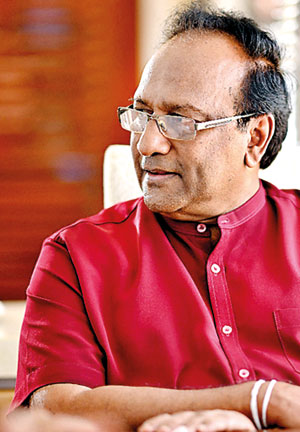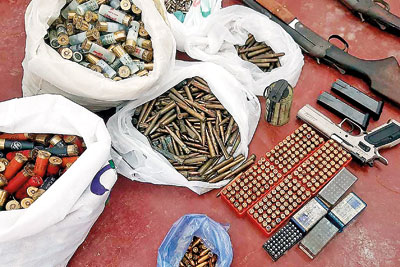News
Police Minister explains new plans to combat organised and narco-crimes

Public Security Minister Sarath Weerasekara
As another illegal weapons amnesty ends without a major a response, police have decided to double down on their war against organised crime.
The operation’s focus would be on the Western, North Western and Southern Provinces which accounted for 45 percent of the crime in the country, Public Security Minister Sarath Weerasekara said.
The new anti-crime drive comes amidst growing concerns over the rising number of criminal activities, including burglaries, robberies, vehicle thefts and chain snatching.
Minister Weerasekara said that in two of the major cases this year the police had made breakthroughs and arrested the key suspects. One of the cases he was referring to was the daylight killing of a fisherman in Moratuwa. Two suspects have been arrested and the motorcycle used by the gunmen to escape has been recovered.
Explaining the new war against crime, Mr Weerasekara said operations against identified criminals would be launched at Senior Superintendent of Police division level, with people being urged to provide information.
“If the operations are successful in the Western Province, it will lead to a reduction of crimes in the outstations. The network could be crippled if we are able to control the situation in the Western Province,” the minister said.
He said they had also identified some 20 people who had been leading their criminal activities from overseas and measures were underway to obtain red notices for their arrests.
Commenting on measures to curb narco-crimes, the minister said one of the main issues had been the smuggling of drugs using seafaring vessels. “The Navy has been requested to step up surveillance as it is from the larger vessels that drugs are transferred to the smaller boats”.
He said a Vessel Monitoring Mechanism would be made compulsory for fishing boats for the authorities to monitor their movements.
Mr. Weerasekera said that as part of the new measures, more facilities would be set up to rehabilitate drug addicts instead of imprisoning them. He said he would present a cabinet paper to this effect after legal consultations.
To prevent schoolchildren from falling victim to drugs, the minister said the Officers in Charge of police stations would be instructed to set up committees comprising, among others, representatives from area schools so that measures could be taken in coordination. Three teachers from each committee will be provided training by the Dangerous Drugs Control Board.
On the issue of traffic congestions, the police minister said they would also focus on controlling traffic by way of technology such as deployment of drones to identify areas of congestion and take remedial steps accordingly.
He said they would also introduce a system whereby motorists could pay their fines and collect their driving licences without a delay.

Public Security Minister Sarath Weerasekara


